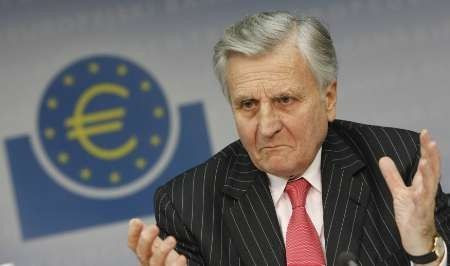EU proposes taxing banks to increase bailout fund

If European banks pay a one-time tax of 50 billion euros, it could help restore some stability to the EU, Reuters said, citing documents from the European Commission obtained by them.
The Commission outlined its plans for a new European Stability Mechanism that will help pay for the new fund to tackle debt issues from 2013, Reuters said.
The fund should be allowed to buy government bonds, which could help the ECB to step back from the bond-purchasing program it began last May, the report added.
The EU, along with the International Monetary Fund, set up a fund to bail out European nations that are in trouble financially. The 750 billion euro fund was used to bail out Greece in May 2010, and Ireland late last year.
Economists believe Spain, Portugal and Italy could also require financial assistance, given the size of their debts. All three countries will face a series of bond redemptions in 2011, based on which investors will decide to continue investing in these regions.
Economists remain split about which country will fold first and ask for assistance. However, experts believe that the EU/IMF Fund will be able to support only two countries.
The IMF was urging the EU to expand the size of the fund in December and also purchase more government debt to keep the euro currency stable. But EU was resisting, stating that the IMF must also contribute more incase they do agree to increase the size of the fund.
Given this situation, the demand for banks to contribute to the fund is more reasonable, given that financial institutions will benefit most from it.
Flagging the need for a critical mass of paid-in capital, officials suggest the financial sector be called on to fund this stockpile because it benefits from the existence of the fund that replaces the current European Financial Stability Facility, the Reuters report said.
The document will be influential in shaping the future of the ESM. If the suggestions are implemented, it would help the ECB to step back from the bond-purchase program and reduce its exposure risk to these debt-inflated markets.
Should the ESM step in, this would mean the ECB would no longer be solely responsible for propping up bond markets, Reuters said.
The report was presented to the eurozone deputy finance minister on Monday, before the gathering of the finance ministers next week and suggests other forms of financing to make it less reliant on EU countries, Reuters added.
© Copyright IBTimes 2025. All rights reserved.





















